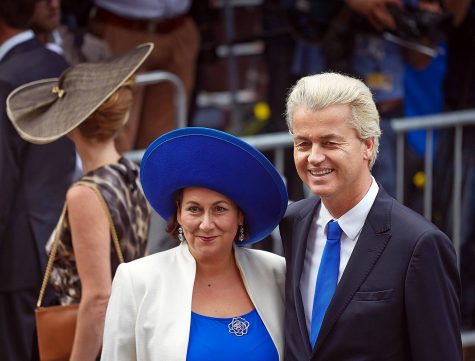Dutch Politics Geert Wild: Europe’s Rising Right

Americans elected a united conservative government in the January election, headed by a nontraditional president pushing anti-establishment sentiment, and people around the world have been watching to see how the nation is handling it. In their recent election, the Dutch experienced a campaign very similar to that of President Trump when he was running. In response to their far-right campaign, the Netherlands have been looking closely at the result of the American far-right victory in order to decide whether they want to follow in our footsteps or choose a different path.
In the past, Dutch politics have been flooded by their three main parties—the Christian Democratic Appeal (CDA), the Labor Party (PvdA) and the People’s Party for Freedom and Democracy (VVD). None of these are known to be far-right or extremely conservative parties because the Party for Freedom (PVV) traditionally held these types of views. While the PVV has been hiding under the three main parties for the past few decades, in the most current election of a prime minister, the PVV’s views were represented in the polls. Geert Wilders, the front runner for the Party for Freedom, campaigned under Trump-esque far-right ideology. One of Wilders’ major promises was to close the Netherland’s borders, shut down mosques, and if elected, leave the euro and European Union. Wilders is commonly referred to as the “Dutch Donald Trump” because they share so many similarities, both physically and intellectually.
Although there are many similarities between Wilders and Trump, their campaigns yielded different outcomes—Trump won his election while Wilders fell short. Because the United States was the first country in recent history to elect a populist campaign and presidency in many years, Americans are being looked at as an example. Because the Netherlands held their election just recently on March 5th, they were able to observe how the US responded to President Trump and his administration. This allowed the Dutch to decide whether they want to follow in our footsteps, or rather take the other path and not elect the “Dutch Donald Trump.” Evidently, they chose the other path to avoid what has happened in America.
While Wilders lost the election to Mark Rutte, the leader of the People’s Party for Freedom and Democracy (VVD) and the Prime Minister of the Netherlands since 2010, the Party for Freedom still found victory in the election in alternate ways. With the great number of votes Wilders received, he was able to give his party five more parliamentary seats, making the PVV the second-largest party in the House of Representatives. Furthermore, the numbers Wilders created forced the VVD to lose eight of their parliament seats and even worse, it caused the Labour Party to lose twenty-nine of their parliament seats. Although Wilders did not find himself in office, he still gathered enough support to make his party the second most influential in the House.
Not only did the Party for Freedom win numerically, but it also forced the other parties to lean their platforms toward anti-Muslimism ideals to gain support. Because Wilders was running his campaign with explicitly racist beliefs and getting a lot of support, the other parties started using the same tactics to win over voters. In the aftermath of the election, we can see the damage Wilders did to Dutch politics even though he did not win the title of Prime Minister. He forced the other parties to expose themselves in ways they were not expecting.
Although Geert Wilders did not win Prime Minister, he led his far-right party to victory by giving the party a platform to voice their beliefs. The idea of conservative, nationalist, and populist governments, sparked from Donald Trump’s Presidency, is spreading to nations all around the world.





